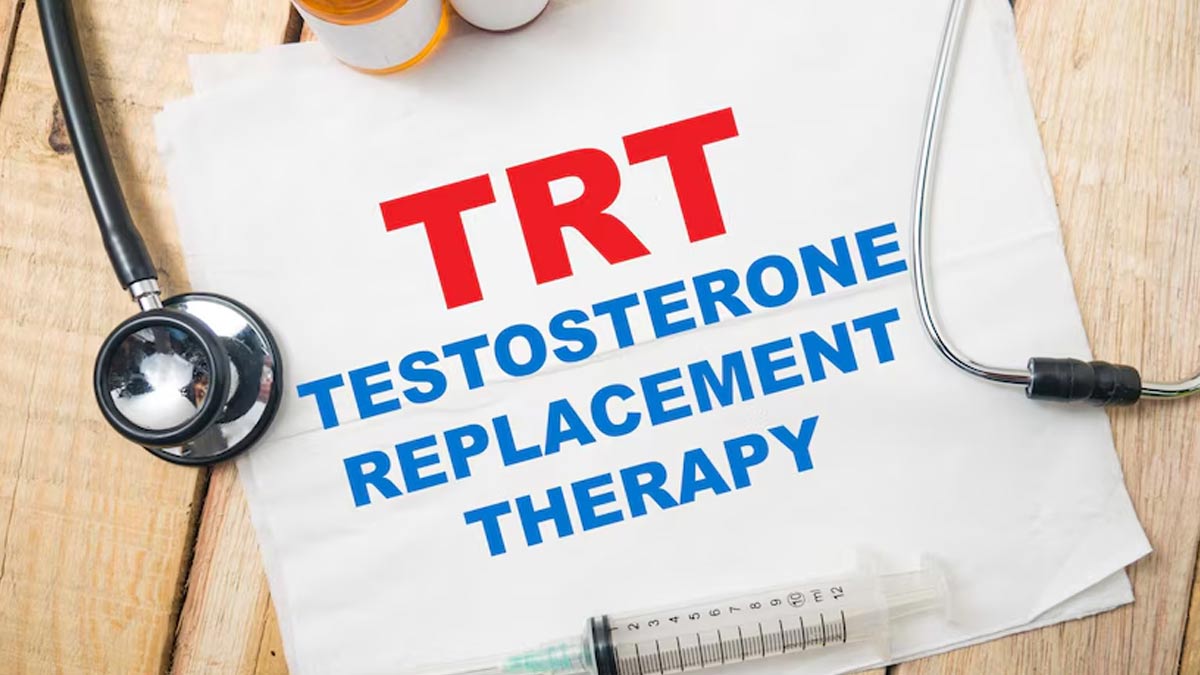
As men get older, it’s common to notice changes like feeling more tired, lower energy, and a reduced interest in things like sex. Many assume this is part of ageing, but it could be linked to decreasing testosterone levels. Testosterone is a key hormone that helps with things like muscle strength, mood, and sexual health, and when it drops, it can affect how men feel. Testosterone Replacement Therapy (TRT) is a treatment that can be beneficial, but it's crucial to understand the associated advantages and risks. We spoke to our expert Dr Adittya K Sharma, Senior Director and Head, Urology, Andrology, Kidney Transplant and Robotic Uro-Oncology, Max Super Specialty Hospital, Gomti Nagar Lucknow, who shared insights into what TRT can offer ageing men and when it might be right for you.
Table of Content:-

According to the New England Journal of Medicine, testosterone levels in men decline as they age. Symptoms and conditions similar to those seen in men with pituitary or testicular disorders, such as reduced mobility, diminished sexual function, and lower energy levels, become more prevalent with advancing age. This connection suggests that lower testosterone levels in older men may play a role in the development of these issues.
Benefits of Testosterone Replacement Therapy
For men with clinically low testosterone levels, TRT offers several potential benefits. Here are some listed by Dr Sharma:

- Improved Sexual Function: One of the most significant benefits of TRT is the improvement in sexual drive and erectile function. Men with low testosterone often experience a decrease in libido, and TRT can help restore a more normal sex drive.
- Increased Muscle Mass and Strength: Testosterone is key in maintaining muscle mass. For ageing men who experience sarcopenia (muscle loss), TRT can help reverse this process, leading to increased strength and better physical performance.
- Bone Density Improvement: Osteoporosis, or weakening of bones, is another concern for ageing men with low testosterone. TRT can improve bone density, reducing the risk of fractures and other complications.
- Enhanced Mood and Cognitive Function: Some men experience depression, irritability, or difficulty concentrating with low testosterone levels. TRT has been shown to improve mood, overall well-being, and cognitive clarity in some individuals.
Also Read: Testosterone And Ageing: Expert Explains How Hormonal Changes Affect Men's Health
Risks of Testosterone Replacement Therapy
While TRT offers potential benefits, it also comes with risks that must be carefully considered:

- Cardiovascular Risks: Some studies have suggested an increased risk of heart disease, stroke, and other cardiovascular events in men undergoing TRT, especially those with pre-existing heart conditions.
- Prostate Health: Testosterone can stimulate the growth of prostate tissue. Although there is no conclusive evidence linking TRT to prostate cancer, it may exacerbate conditions like benign prostatic hyperplasia (BPH), leading to urinary symptoms.
- Sleep Aponea: TRT has been associated with the worsening of sleep aponea, a condition that causes intermittent cessation of breathing during sleep, leading to fatigue and other health issues.
- Red Blood Cell Production: TRT can increase red blood cell count (erythrocytosis), which raises the risk of blood clots, heart attack, and stroke.
According to a 2021 study, testosterone replacement therapy can be beneficial for healthy older individuals with notable hypogonadism. However, it should not be used in those with serious cardiovascular conditions or prostate cancer. Extra caution is advised when treating individuals with benign prostatic hyperplasia.
Also Read: Suffering From Weak Bones? Expert Suggests Low Testosterone Levels Could Be The Reason
Bottomline
Dr Sharma concluded, “While TRT can offer significant benefits for ageing men with low testosterone levels, it should be approached cautiously. A thorough evaluation, including a discussion of potential risks, is essential before starting therapy. Regular monitoring during treatment is also critical to ensure safety and effectiveness.”
[Disclaimer: This article contains information provided by an expert and is for informational purposes only. Hence, we advise you to consult your own professional if you are dealing with any health issues to avoid complications.]
Also watch this video
How we keep this article up to date:
We work with experts and keep a close eye on the latest in health and wellness. Whenever there is a new research or helpful information, we update our articles with accurate and useful advice.
Current Version